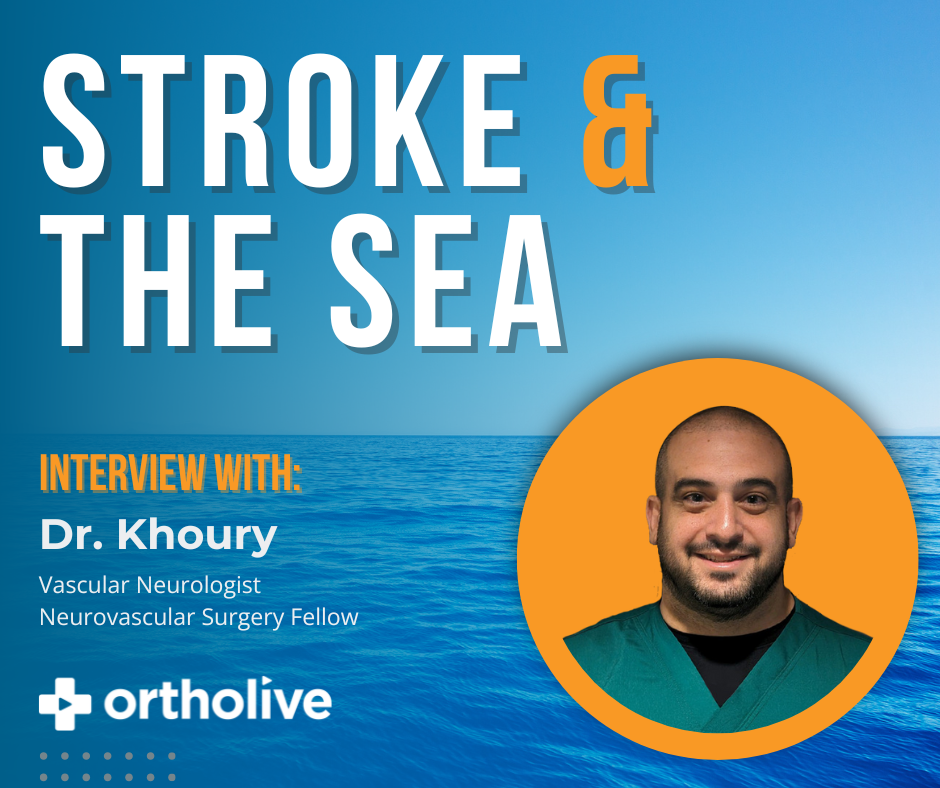
Tell our audience a little bit about you and your background.
Dr. Khoury: I was born and raised in the Chicago suburbs. I started in nursing and phlebotomy before going to medical school in Europe, specifically in Budapest, Hungary. My sister was there, and during a visit, I ended up studying for the entrance exam and got in. That started my journey. I spent about seven years there, including playing American football on their national team, which was a highlight.
After graduating from Semmelweis University, I worked in ERs across Ireland for three years. I was supposed to join Doctors Without Borders, but during the Ebola crisis, I got cold feet. My girlfriend at the time suggested working on cruise ships, so I gave it a try. I started with Carnival Cruise Line on the Carnival Dream out of New Orleans and eventually got promoted to shore-side medical roles.
At that point, I knew I needed to return to residency to further my career. I joined a psychiatry program but quickly realized it wasn’t for me. Psychiatry lacked the medical component I enjoyed, and much of the work involved social and familial dynamics. I left the program on good terms and returned to Carnival as a medical director.
I spent two years in that role, working on industry alignment and operational improvements. Just as the pandemic began, I stayed on to help transition the team but eventually left to pursue neurology. Stroke care was one of the most challenging aspects of my operational work, and I wanted to understand it better. I completed my neurology residency and stroke fellowship at Tulane University, and now I’m training in endovascular neurosurgery.
That’s impressive. That must have taken a lot of time.
Dr. Khoury: It did, but honestly, I wouldn’t say I’m particularly smart. It’s about hard work and persistence. I tell people that if they remember me as a hard worker, I’ll be happy with that legacy.
Are you still with Carnival now?
Dr. Khoury: No, I do expert work for their outside counsel.
How did your ER experience in Europe translate to working on cruise ships?
Dr. Khoury: ER or ICU experience is almost a prerequisite for working on cruise ships. ER is unique because we see and treat a wide variety of cases, though cruise ship care often requires longer-term management. That’s where platforms like OrthoLive have made a big difference, providing access to specialists when needed.
How has OrthoLive impacted the cruise industry?
Dr. Khoury: The feedback I’ve heard has been overwhelmingly positive. Before OrthoLive, specialist access in challenging ports could take weeks. Now, with telemedicine, we’re often talking about hours, which is a game-changer.
Tell us about emergencies like heart attacks or strokes on ships and cruise lines?
Dr. Khoury: Stabilizing the patient is always the priority. Evacuations, like airlifts, are logistically complex and often misunderstood. Many factors, such as weather and helicopter range, come into play. For strokes, the time windows for treatment—4.5 hours for thrombolytics or 24 hours for thrombectomy—are rarely achievable onboard, so it becomes an operational challenge.
How do ship doctors protect themselves from malpractice issues?
Dr. Khoury: Documentation is critical. Many ship doctors are not accustomed to the level of protective medicine required in the U.S. Proper documentation and communication with shore-side resources are key to mitigating risks.
What role does technology play in improving care on cruise ships?
Dr. Khoury: Access to specialists is huge, and OrthoLive is light-years ahead in the maritime industry. They’re also exploring electronic medical records tailored to cruise lines, which could revolutionize documentation and care.
Can you share a memorable experience where your expertise made a difference?
Dr. Khoury: During the early days of COVID, I coordinated evacuations for cruise ships like the Grand Princess. It was politically and logistically challenging, but my experience with mass casualty events prepared me for it.
What’s your favorite aspect of working with OrthoLive?
Dr. Khoury: Trust. They genuinely put patient care first, which is rare. They prioritize doing the right thing over business goals, and that’s why they stand out.
Do you have any parting words about OrthoLive or the work you do?
Dr. Khoury: OrthoLive is an incredible team. They’re innovative, compassionate, and always focused on making a difference. It’s a privilege to be part of what they’re building.


